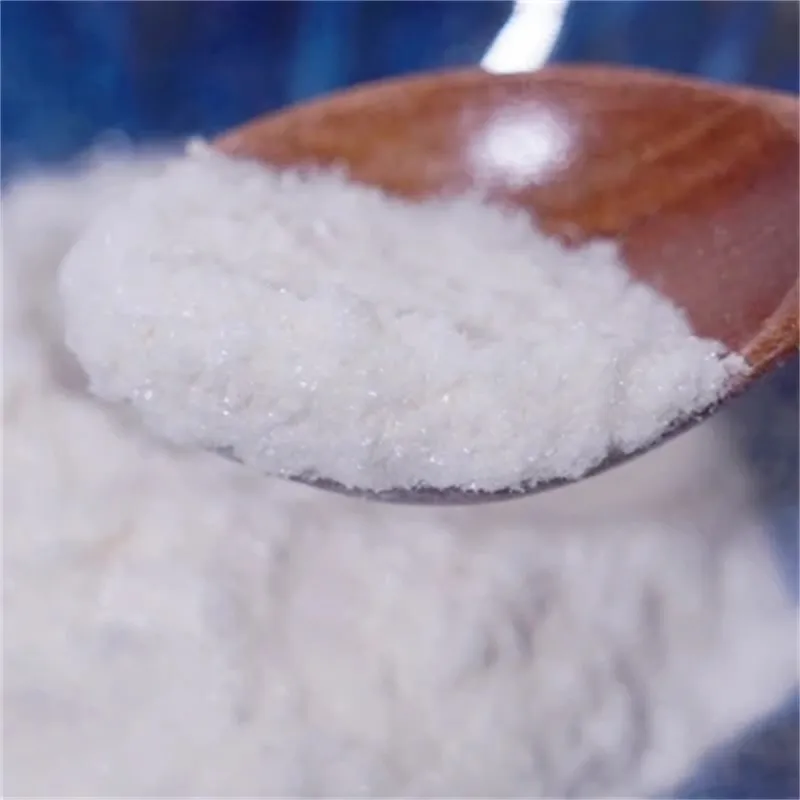Warning: Undefined array key "title" in /home/www/wwwroot/HTML/www.exportstart.com/wp-content/themes/1198/header.php on line 6
Warning: Undefined array key "file" in /home/www/wwwroot/HTML/www.exportstart.com/wp-content/themes/1198/header.php on line 7
Warning: Undefined array key "title" in /home/www/wwwroot/HTML/www.exportstart.com/wp-content/themes/1198/header.php on line 7
Warning: Undefined array key "title" in /home/www/wwwroot/HTML/www.exportstart.com/wp-content/themes/1198/header.php on line 7
אוק . 11, 2024 17:31 Back to list
Investigating the Advantages and Applications of Xanthan Gum in Various Industries
Exploring the Benefits and Uses of Xanthan Gum
Xanthan gum is a polysaccharide that is commonly used in the food industry as a thickening agent, stabilizer, and emulsifier. It is produced by fermenting glucose or sucrose with a specific strain of bacteria called Xanthomonas campestris. This natural compound has gained immense popularity due to its unique properties and versatility, making it an essential ingredient in various products. In this article, we will explore the benefits and diverse applications of xanthan gum.
1. Thickening Agent
One of the most notable benefits of xanthan gum is its ability to thicken liquids. It is often used in salad dressings, sauces, and soups to improve texture and mouthfeel. Unlike other thickening agents, xanthan gum remains stable across a wide range of temperatures and pH levels, making it a preferred choice for both hot and cold applications. This stability ensures that food products maintain their desired consistency, whether they are served fresh or after packaging and storage.
Xanthan gum not only thickens but also acts as an excellent emulsifier. It helps in stabilizing mixtures of oil and water, which is particularly useful in products such as mayonnaise and vinaigrettes. By preventing the separation of ingredients, xanthan gum ensures a consistent texture and flavor throughout the product's shelf life. This emulsifying property is also beneficial in cosmetic formulations and personal care products, where a stable mixture of various ingredients is crucial for performance and aesthetic appeal.
3. Gluten-Free Baking
For those with gluten sensitivities or celiac disease, xanthan gum plays a vital role in gluten-free baking. When added to gluten-free flours, it mimics the elasticity and chewiness provided by gluten, helping to improve the texture of baked goods like bread, cookies, and cakes. This not only enhances the sensory experience of gluten-free products but also expands the range of options available for those adhering to gluten-free diets.
'exploring the benefits and uses of xanthan gum ...'

4. Improved Shelf Life
Xanthan gum contributes to the extended shelf life of various food products. Its stabilizing properties help prevent the separation of ingredients and maintain the overall quality of the product over time. This is particularly advantageous for manufacturers, as it reduces waste and increases consumer satisfaction by delivering consistent quality in every package.
5. Industrial Applications
Beyond food, xanthan gum has various industrial applications. It is widely used in the cosmetics industry as a thickening agent and stabilizer in lotions, creams, and gels. In the pharmaceutical sector, it acts as a binder in tablet formulations and extends the release of active ingredients. Additionally, xanthan gum is employed in oil drilling, where it is used to thicken drilling mud, facilitating the extraction process by preventing the loss of valuable fluids.
6. Health Benefits
Xanthan gum is also recognized for its potential health benefits. As a soluble fiber, it can aid in digestion and help manage blood sugar levels by slowing down the absorption of carbohydrates. Furthermore, it can contribute to feelings of fullness, which might assist in weight management strategies. However, it is essential to consume xanthan gum in moderation, as excessive intake may lead to digestive discomfort for some individuals.
Conclusion
In summary, xanthan gum is an incredibly versatile ingredient with a wide array of benefits and uses across multiple industries. Its abilities as a thickening agent, emulsifier, and stabilizer make it an invaluable component in both food and non-food products. Whether enhancing the texture of gluten-free baked goods or ensuring the stability of cosmetics, xanthan gum continues to prove its worth in our daily lives. As we increasingly seek natural and effective solutions in food and product formulation, the popularity of xanthan gum is set to grow, further solidifying its place as a staple ingredient.
Latest news
-
Certifications for Vegetarian and Xanthan Gum Vegetarian
NewsJun.17,2025
-
Sustainability Trends Reshaping the SLES N70 Market
NewsJun.17,2025
-
Propylene Glycol Use in Vaccines: Balancing Function and Perception
NewsJun.17,2025
-
Petroleum Jelly in Skincare: Balancing Benefits and Backlash
NewsJun.17,2025
-
Energy Price Volatility and Ripple Effect on Caprolactam Markets
NewsJun.17,2025
-
Spectroscopic Techniques for Adipic Acid Molecular Weight
NewsJun.17,2025

